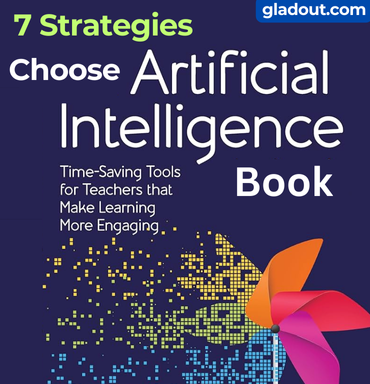Top 7 Strategies to Choose Advanced Artificial Intelligence Book
Introduction
Artificial intelligence (AI) is no longer just a futuristic concept—it’s transforming industries and reshaping our lives. For professionals and AI enthusiasts, staying updated with advanced knowledge is critical. While online resources abound, books provide unparalleled depth and structure. Choosing the right advanced artificial intelligence book can be challenging, especially when exploring cutting-edge areas like hybrid AI, explainability, and ethical challenges.
This guide introduces 7 unique strategies for selecting an AI book, offering insights into unexplored areas to help you stay ahead in 2024.
1. Look for Books with Unexplored AI Applications
Numerous publications on AI concentrate on common subjects like neural networks and machine learning. However, new areas need to be addressed in 2024:
- AI in Healthcare: Books that explore AI’s role in genomics, drug discovery, and personalized medicine.
- AI for Creative Industries: How AI is transforming content creation, film production, and music composition.
- AI for Legal Tech: A niche but growing topic covering contract analysis and legal predictions.
2. Seek Out Books That Address Hybrid AI Models
Hybrid AI, combining symbolic reasoning and neural networks, is becoming a cornerstone of modern AI. Books that delve into this topic are scarce but valuable for readers aiming to understand:
- How hybrid models outperform traditional neural networks.
- Use cases in natural language processing (NLP) and robotics.
3. Prioritize Books Covering Quantum AI
Quantum computing is on the horizon, and its intersection with AI is an unexplored goldmine for researchers. Look for books that discuss:
- Quantum algorithms designed for AI.
- Real-world applications of quantum-enhanced machine learning.
- Challenges and ethical concerns of quantum AI.
Read More: How to Write Google Review on iPhone
4. Explore Books Addressing AI Safety and Policy
It is impossible to overestimate the significance of safety precautions and legislative frameworks as Asi grows in strength. Suggested subjects include:
- Alignment Problem: Ensuring AI aligns with human values.
- Policy Approaches: Books offering global perspectives on regulating AI development.
5. Don’t Miss Books Focused on AI Explainability
AI explainability is crucial as black-box systems gain traction. Leading books in this space include:
- Case studies of explainable AI (XAI) in sensitive fields like finance and healthcare.
- Approaches to improve transparency in decision-making algorithms.
Read More: Top 10 Benefits of AI in Healthcare
6. Future-Focused AI Books: Beyond Today’s Techniques
Books that envision new developments offer a forward-thinking viewpoint. Some things to think about are:
- The Metaverse and AI: investigating the function of AI in immersive technologies.
- Climate Solutions Driven by AI: applications in sustainable urban planning and renewable energy.
- AI-Human Cooperation: workplaces of the future where AI enhances human creativity.
7. Opt for Authoritative Books by AI Experts
When selecting advanced AI books, consider works by established experts or researchers actively contributing to AI innovation. Look for:
- Books authored by OpenAI contributors or leading AI labs.
- Publications cited in top journals or conferences like NeurIPS and CVPR.
- Forward-thinking experts such as Dr. Stuart Russell (AI safety) or Fei-Fei Li (computer vision).
Read More: How to Exclude Word from Google Search
Pro Tips for Choosing the Best Book
- Check Reviews on Goodreads: Reviews often provide insights into the depth and readability of a book.
- Supplement with Online Communities: Engage in forums like Reddit’s r/MachineLearning or LinkedIn groups for curated recommendations.
- Go Beyond Books: Follow up with related research papers and online courses for maximum knowledge retention.
Conclusion
Selecting the right advanced artificial intelligence book is more than just choosing a title—it’s about finding a resource that aligns with your learning goals and career aspirations. By focusing on unexplored topics like hybrid AI, quantum computing, and ethical AI, you can gain a competitive edge in this dynamic field. Let this guide be your compass in navigating the ever-expanding landscape of AI literature in 2024.




